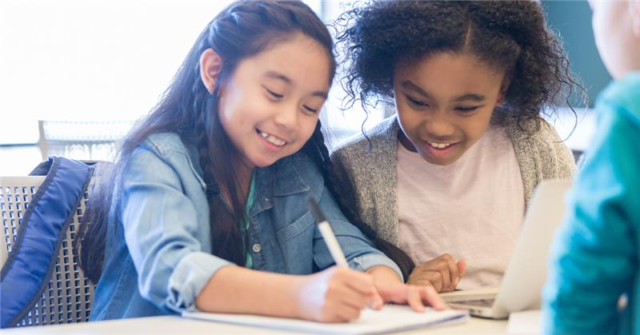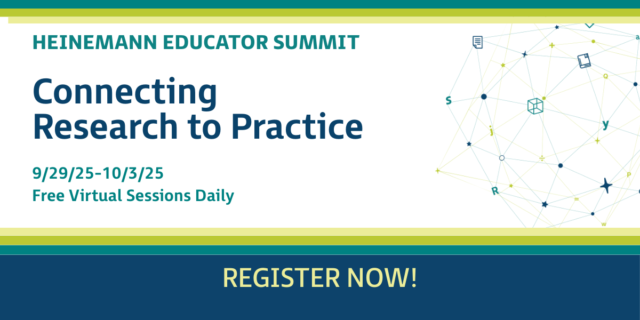Jessica Lifshitz is a Heinemann Fellow with the 2014–2016 class, and has been an educator for 11 years. In today's post, Jessica discusses her action research project and how she came to change the very nature of her reading conferences.
Jessica Lifshitz is a Heinemann Fellow with the 2014–2016 class, and has been an educator for 11 years. In today's post, Jessica discusses her action research project and how she came to change the very nature of her reading conferences.

When You Change the Question, You Open a World of Possibilities
by Jessica Lifshitz
This is my tenth year teaching fifth grade in a suburban school, where children are used to talking about reading with the people in their lives. They have had countless conversations with countless adults about countless books by the time they reach me. And both the students and I often thought that we had this whole reading conference routine figured out. But as I reflected on the kinds of conversations that I was having with my students, I noticed something troubling: we spent more time talking about the book than about the reader.
As teachers, we must push ourselves in every reading conference to ensure that the most important topic is not the book the child is reading but the reader the child is becoming. In the past I spent the majority of my time with a child discussing the plot of the book he was reading. I asked probing questions, I asked about the characters, I asked for his opinion of the book and what his plans were when he finished. But in all that asking, I left little time for the child to tell me about his actual reading work. I left little time for him to lead the discussion. I left little time to help him pick up on an observation he had made and carry it through the rest of the book. I missed so many opportunities.
And that is what led me to my action research project. There had to be a better way to talk to my students about their reading. There had to be a better way to help them pick up on the thinking they were already doing and push them toward new insights. I set out to discover the most effective instructional tactics that help students develop their own goals and focuses as readers.
There had to be a better way to talk to my students about their reading.
The reading conferences that I have with my students each day are at the heart of my work. I needed to make a drastic change in the conversations my students and I were having about books if they were going to reach the places I wanted them to reach. In the past, I began every conference by asking, “What have you been reading about so far in your book?” Students’ responses often went on for five minutes or more as they gave detailed descriptions of what was happening in the story.
This year, I made one simple change. I begin each conference by asking, “What have you been noticing as you read this book?” The results are amazing. This one small change has completely shifted the focus of our reading conferences. Now, instead of beginning with a long-winded description of the book, my students tell me what they have noticed in their reading. They tell me about their thinking as they read. They describe not only what is written on the pages, but what is happening in their minds. It might be something as simple as noticing that one of the characters is brave, or noticing that the author portrays one character as awful most of the time, only to add in moments of kindness later. Students might notice that the relationship between two characters in the book is changing. And yes, sometimes I am confused because I have not read the book, but then I ask clarifying questions and bring the focus back to their observations.
When I changed the question that began my reading conferences, I changed the focus of the conference. I changed my message. Now instead of showing the child that the book was the most important part of her reading, I instead show that her own thinking is the most important part of her reading. And that has opened up a whole new world of possibilities, for me and for my students.
As I move forward with my action research, I will look for small changes that have big impacts on my students’ reading. I will continue to share those small changes with others, so that together we can focus on our students rather than on the books. Together, we can give the power back to our students, and follow them to incredible places.
♦ ♦ ♦ ♦
Jessica Lifshitz is a fifth grade teacher at Meadowbrook Elementary School in Skokie, Illinois. Her action research asks, "What are the most effective instructional tactics to help students to develop their own goals in narrative texts?" You can follow her progress on Twitter at @Jess5th or on her blog Crawling Out of the Classroom.
Please visit the Heinemann Fellows page to learn more.


